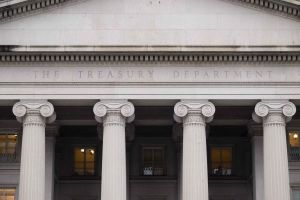Americans pulling back from values that once defined them

A recent survey conducted by The Wall Street Journal and The University of Chicago found that Americans are, in huge numbers, pulling back from the values that once defined them. Over the last 25 years, the percentage of Americans who described “Patriotism” as either “important” or “very important” fell from 70% to 38%. Those who valued “Religion” fell from 62% to 39%, “Having Children” from 59% to 30%, and “Community Involvement” from 47% to 27%. Even the percentage of Americans valuing “Tolerance for Others” dropped from 80% to just 58%. Only one value out of the ten listed increased: “Money,” from 31% to 43%.
Bill McInturff is an expert involved with previous iterations of this survey. He told The Wall Street Journal, “Perhaps the toll of our political division, COVID, and the lowest economic confidence in decades is having a startling effect on our core values.’’ While economic affairs affect what people consider to be important, this is reversing the proverbial cart and horse. Corrupt societies can be prosperous, but only for a time. Eventually, low trust, rampant injustice, and civic division have consequences. Throughout history, economic crisis has not created a moral vacuum: It reveals it.
If there is no moral design to reality, or for humanity in particular, what people value is inconsequential. In such a world, there is nothing to be pursued outside of individual expression, which is assumed to lead to happiness and human flourishing. Who cares if people do not value communities, countries or tolerance? It is the inherent determination of individuals, the pursuit of what they want the most, that will inevitably guide them. We can only follow our own impulses and desires.
History tells a different story, however. For example, a central genius of the American system is the built-in idea that people can and will go wrong if given the chance. Even the well-intentioned can be hypocrites, including America’s founders, who nevertheless understood the pitfalls of both concentrated power and a virtue-less mob. In the prophetic words of John Adams,
“We have no government armed with power capable of contending with human passions unbridled by morality and religion. Avarice, ambition, revenge, or gallantry would break the strongest cords of our constitution as a whale goes through a net.’’
Or, in the words often attributed to Patrick Henry, “Bad men cannot make good citizens.”
Though various forms of godless philosophy reject the idea, our most fundamental beliefs about life and the world shape our behavior. We do the things that are important to us, and we consider what is important based on what we think is true about life and the world. Put differently, our values shape our actions, and what we value is shaped by what we believe. Or, to fall back on a well-worn phrase, ideas have consequences.
America’s changing values reflect a deeper change in how we think about reality itself, especially what we believe about meaning, purpose and identity. What is life all about? Who am I? Why am I here? America’s changing values will be reflected in how we live, both as individuals and how we order our lives together as a society.
Any solution, if it will help and not further harm, must first accurately diagnose the crisis. To diagnose a crisis of values as primarily economic is to confuse cause and effect. Conservatives who tout the free market alone without addressing the fundamental beliefs and values required to sustain life together, miss the point. A fabulously wealthy society is not, in and of itself, a better one. America needs a revival, one that will rekindle belief in what is true and good, and ultimately in that which is bigger than ourselves.
Christians, connected to the true Vine, can show the better way, loving our neighbors (even when we are hated) and loving truth. In a world starving for the right values, God gives our lives true value. The world is valuable because God created it and Christ died to save it. May God grant us the courage to live like this is true.
Originally published at BreakPoint.
John Stonestreet serves as president of the Colson Center for Christian Worldview. He’s a sought-after author and speaker on areas of faith and culture, theology, worldview, education and apologetics.
Kasey Leander is a Fellow with the Oxford Centre for Christian Apologetics (OCCA). Prior to his time at OCCA, Kasey earned an undergraduate degree in history and PPE (Politics, Philosophy, and Economics) from Taylor University. While at Taylor, Kasey served in various ministry roles on campus and was active in student government. He has also worked briefly in politics, serving as an intern in the US Senate in Washington, DC.




























